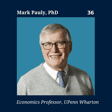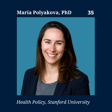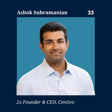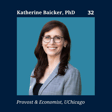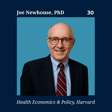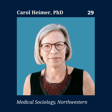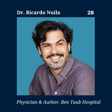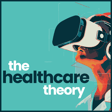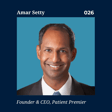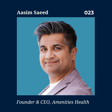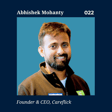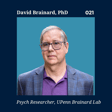
Your Genetic Code or Zipcode? | Northeastern Professor Allison Bauer
We're joined by Professor Allison Bauer of Northeastern's College of Health Sciences to explore how social determinants impact health delivery.
Professor Bauer shares her journey from law to healthcare policy and philanthropy, highlighting how community health centers are revolutionizing care through innovative, community-centered approaches that tackle food insecurity, housing instability, and healthcare access. Through her work at the Boston Foundation and the government, she demonstrates how addressing social determinants of health can transform healthcare outcomes. Learn how she's shaping the next generation of healthcare professionals while tackling pressing challenges in mental health, environmental health, and community care accessibility.



